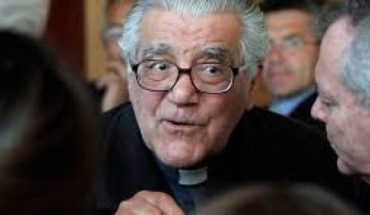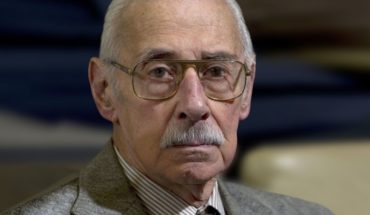Without a majority, but the central chapter for President López Obrador of the electricity industry law, that of the prevalence of the CFE in the production and commercialization of electrical energy over private sector companies, was declared constitutional. If in the coming days the proposed constitutional reform for the sector does not go ahead, the costs for the government project to transform the CFE back into hegemonic, in reality monopolistic in the sector, will not be so high. The Court’s decision was taken by four votes, of which three were predictable: that of Ministers Loretta Ortiz and Yazmín Esquivel and that of Minister President Arturo Zaldívar. Those that would be issued considering the unconstitutionality of the law as well. The vote that for some was that of Minister Alfredo Gutiérrez Ortiz Mena who ended up supporting the constitutionality of the law in relation to the hegemony of the CFE. Minister President Zaldivar said that it should be the Federal Competition Commission and in another area SENER that must take care that the CFE does not become monopolistic, but both instances are seriously weakened and if the constitutional reform is approved, SENER would become another part of the Energy Secretariat. Some of the arguments that were presented in favor of the approved project seem to have nothing but a political support. For example, arguing that giving hegemony and prevalence to the CFE, as it is set forth in the law, does not violate the constitutional norm does not seem to make sense, because the letter of the constitution says otherwise. Maintain that private initiative is not affected either, because it is clear that it will be. It was not a question of making adjustments to the energy system, but of modifying it profoundly, changing the rules of the game and players. That violates, it is assumed, legal certainty. In political terms, it is a triumph of President López Obrador and his Secretary of the Interior, Adán Augusto López, who after the suspension of the session that was decreed last Tuesday, spent a good part of Wednesday at the headquarters of the Supreme Court lobbying with the ministers. And he achieved the four votes, although two of the ministers appointed this sexennium, González Alcántara and Ríos Farjat, with different tones, ended up voting against Loretta Ortiz’s project. Even in another important chapter, that of clean energy certificates and environmental issues, when Minister Ortiz Mena voted for the unconstitutionality of them, Minister González Alcántara voted in favor: the exchange of votes, again left the vote 7 to 4 and therefore there is no important chapter of the law declared unconstitutional. All this, let us not lose sight of, is also related to a crucial issue for the future of many ministers: the succession of Zaldivar at the head of the Supreme Court from the first of January. It is true that there are still months to go but the cards are already on the table. It will be difficult for any of those who fully supported the unconstitutionality of this law to have the support of the executive in the succession process. Minister Yazmín Esquivel is confirmed as the strongest candidate, while Ministers González Alcántara and Gutiérrez Ortiz Mena seek to profile themselves as having greater margins of independence. I don’t think there are any more candidates. The future of the coming months will be able to define who will be in charge of the judiciary in January, remembering that only the ministers of the plenary participate in the election. President López Obrador bet on absolute polarization, even with ministers, and, for now, he took forward what is one of the decisive chapters for Q4. It helps their cause but I doubt very much that it will help the country, its economy, investments, development, the environment, the quality of life of the people. President López Obrador is betting on returning to the 60s and yesterday he confirmed it by reading in the morning the decree of López Mateos that created the CFE. The problem is that this world no longer exists. And again RussiaAir the United Nations General Assembly suspended Russia’s membership in the Human Rights Council, with 93 votes in favor, 24 against and 58 abstentions. The General Assembly thus expressed “its grave concern at the current humanitarian and human rights crisis in Ukraine, in particular at reports of violations and abuses of human rights and violations of international humanitarian law by the Russian Federation”, including “systematic abuses” of human rights. Mexico did not vote with democratic nations, with our trading partners like the United States and Canada, with those of the European Union, with good par.te of Latin America. The vote had already been advanced by President López Obrador who had said that Mexico would abstain because it “seeks peace.” In reality, abstention from that neutrality becomes support for the Putin regime. Before our trading partners we have become a local version of Victor Orban, the far-right president of Hungary, the only one in the European Union who systematically refrains from sanctions against Russia. Who needs those companions on the road?
Original source in Spanish
no majority, but keep going
April 8, 2022 |





